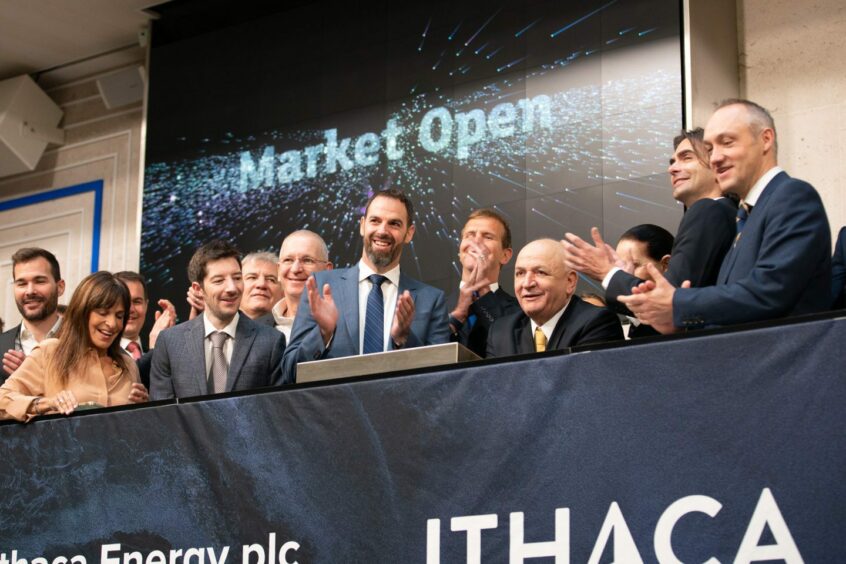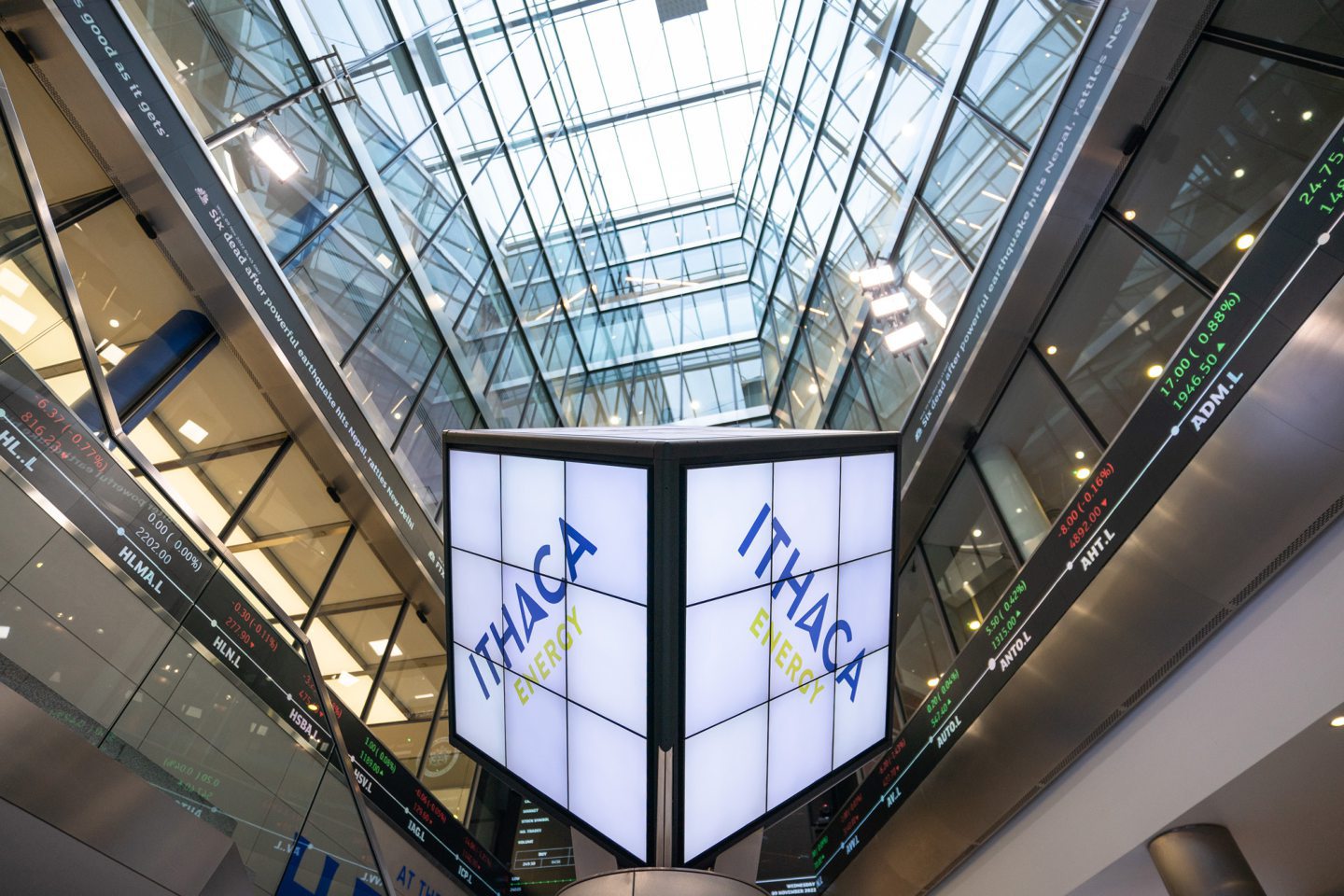
A top boss at Ithaca Energy (LON: ITH) hopes the company’s initial public offering (IPO) in London will mark a “turning point” for investment in the North Sea.
Chairman Gilad Myerson spoke to Energy Voice as the independent entered trading on Wednesday, in the largest IPO for the UK this year, setting a market value of £2.45bn for Ithaca.
The London listing is the first IPO for any exploration and production company in the UK for five years.
Shares opened trading at 244.95 pence on Wednesday, below the offer price of 250 pence, but raising £288m to pay down debt.

Shares were down nearly 6% as of 2.30pm to 230.30 pence.
Mr Myerson said the Ithaca Energy IPO is “recognition from investors” of the attractiveness of the market and the company’s prospects.
“The fact that we’ve listed. It’s five years in the UK without an (E&P) IPO. It just demonstrates that there is a lot of willingness from investors to support E&P companies and support domestic supply.
“We hope this will also be a turning point for other companies to increase investor interest in the North Sea.
“We’re very pleased, relieved and we’re very excited about it.”
A 10% stake in the company has been floated – with potential for up to 11.9% via other shares to be released by parent firm Delek Group, of Israel.
Ithaca Energy IPO: Decom liabilities and upside potential
Ithaca’s upside is largely based on its west of Shetland projects; its operated Cambo oilfield and the Rosebank project, which it is partnered in.
Together they represent the largest known untapped resource in UK waters, though Myerson also pointed to work ongoing with the Marigold project in the Central North Sea which it is working up in partnership with Hibiscus Petroleum.
The opening valuation of Ithaca has raised questions for some, however.
Ashley Kelty, oil and gas research analyst at Panmure Gordon, said it doesn’t “stack up” with peers like Harbour Energy ($3.9bn) and EnQuest ($627m) in terms of production and reserves.
He pointed to sizable decommissioning liabilities for Ithaca through its mature central North Sea portfolio, and the fact that most of the upside will be in yet to be sanctioned West of Shetland potential.
In reply, Mr Myerson said Ithaca went through a “six month listening tour of the market” to make sure they were attractive in what has been a volatile market.
Cambo, Rosebank, Marigold
“What investors wanted to see was an attractive dividend, combined with a growing portfolio and we are able to deliver both. We’ve got a very attractive dividend policy – $400m next year – and we have one of the most attractive growth prospects in the North Sea with a huge amount of reserves that will be sanctioned very soon.
“We’re not talking about long-term reserves that are speculative by nature, we’re talking about well-appraised reserves; the likes of rosebank, Cambo, Marigold, Captain EOr (phase 2), Fotla. There’s Tornado coming. We’re talking about a portfolio that will provide significant growth for us and for investors.”
The Ithaca Energy chairman also pointed to its $2bn EBITDA guidance (earnings before interest, taxes, depreciation, and amortisation) for this year.
To meet the firm’s dividend promises, Mr Kelty of Panmure Gordon said Ithaca will likely need to refinance.
Mr Myerson said Ithaca expects to be net debt free at “some point in 2023”.
However he conceded refinancing will be on the cards – but the primary driver of that will be for the huge projects on the horizon.
“We will need to refinance to develop Cambo, Rosebank and Marigold. Just because these are very large developments.
“First oil is planned for 2026-onwards and therefore will require refinancing.”
Recommended for you
